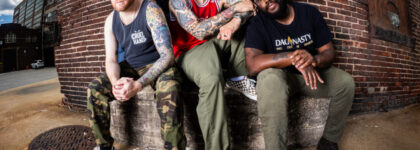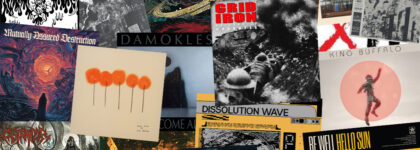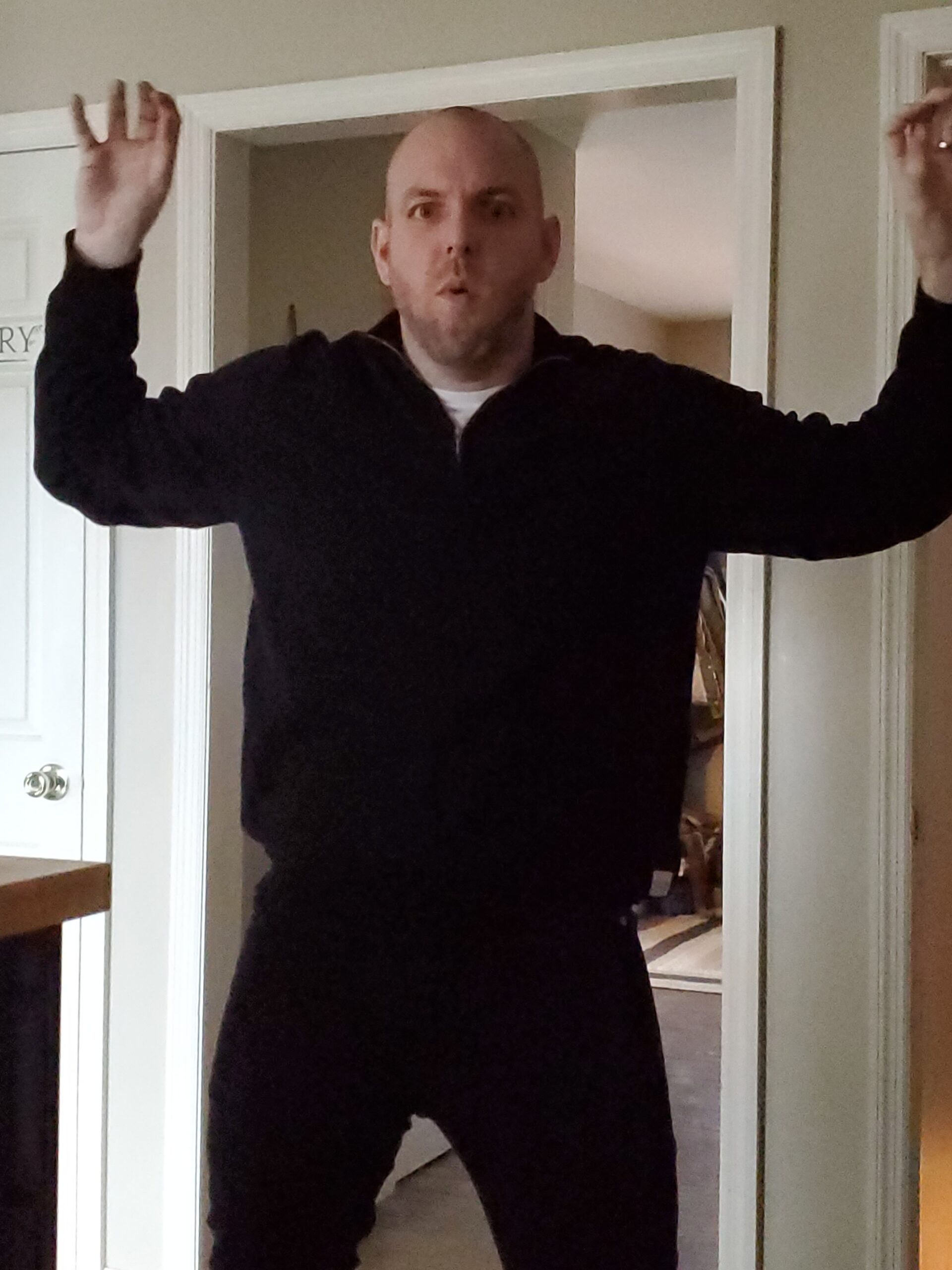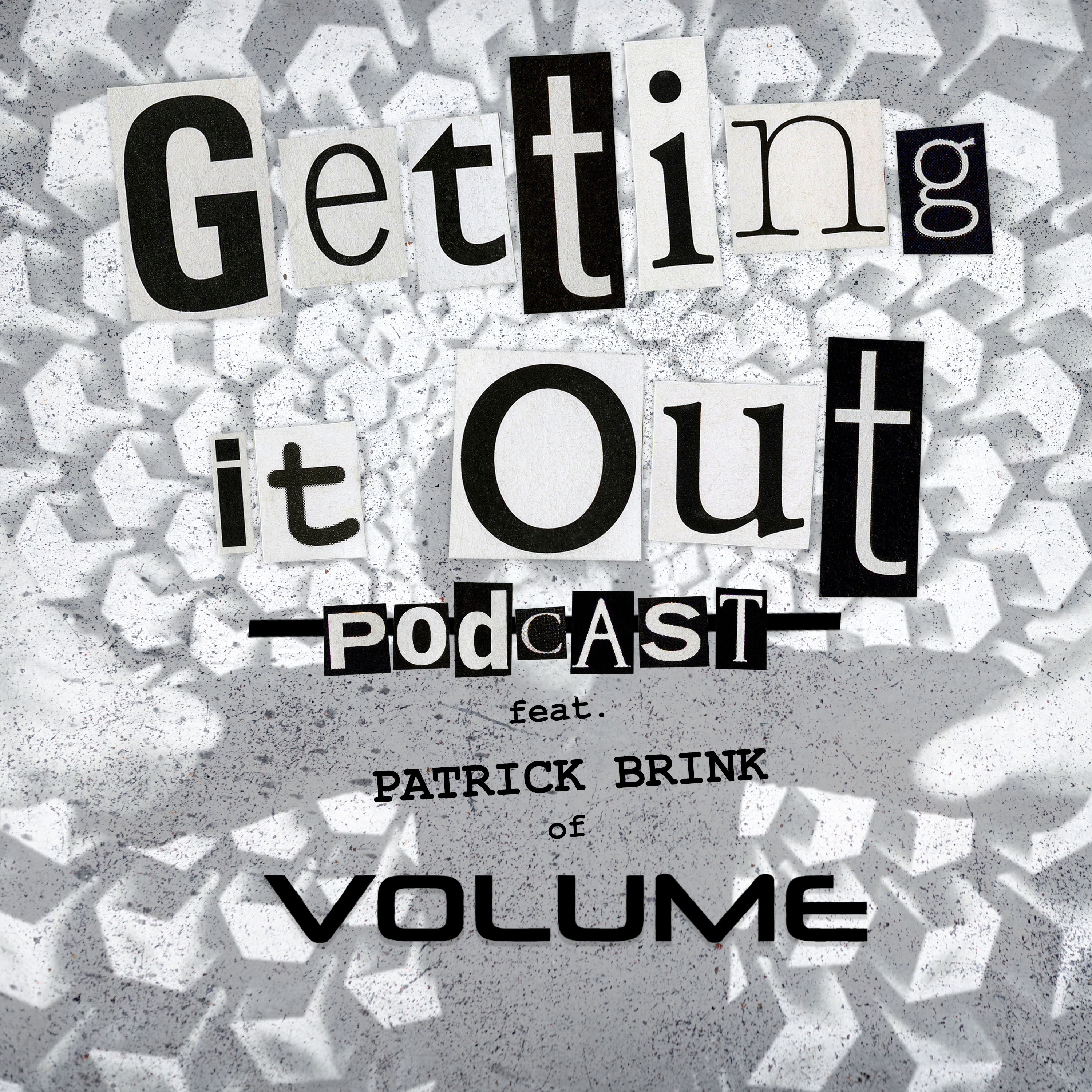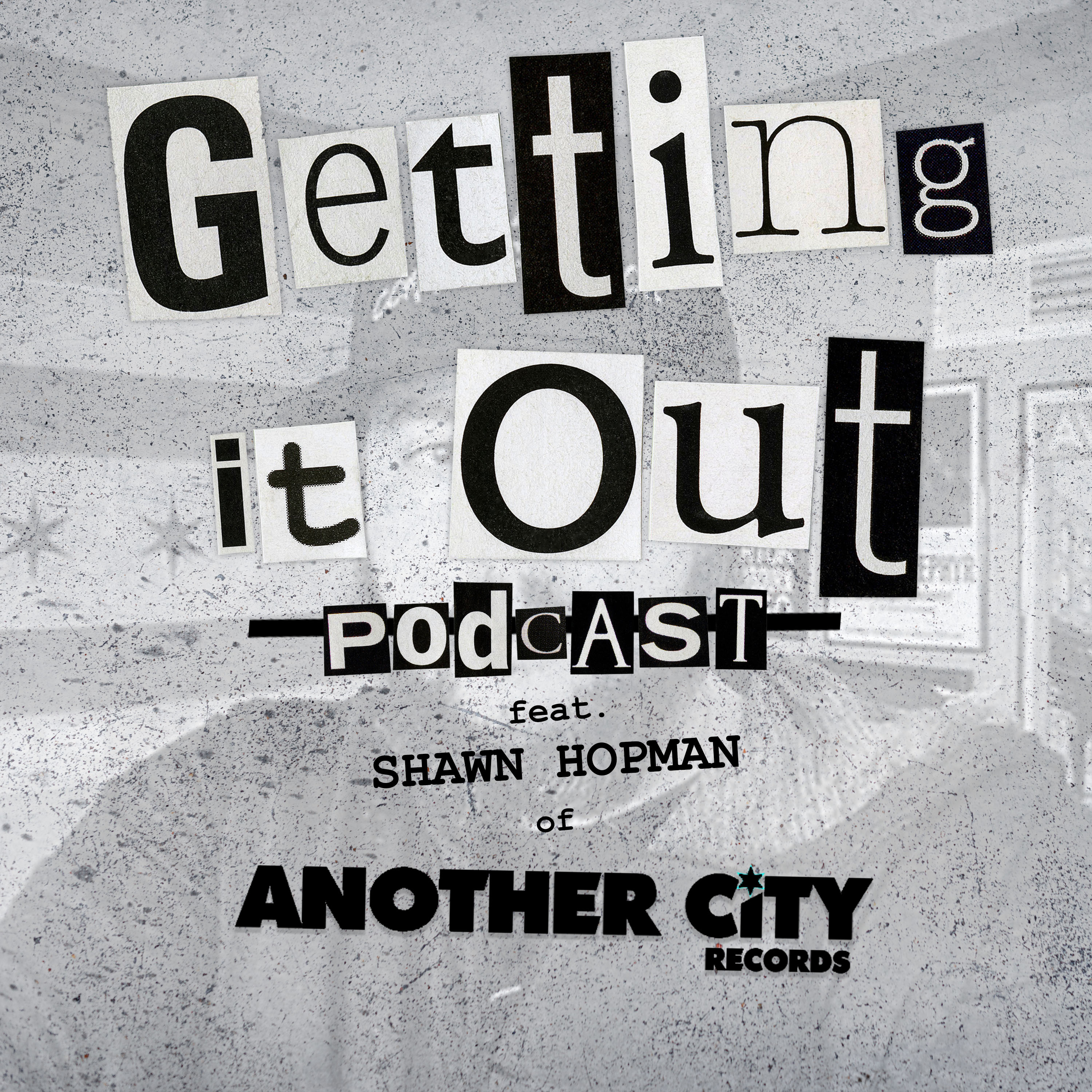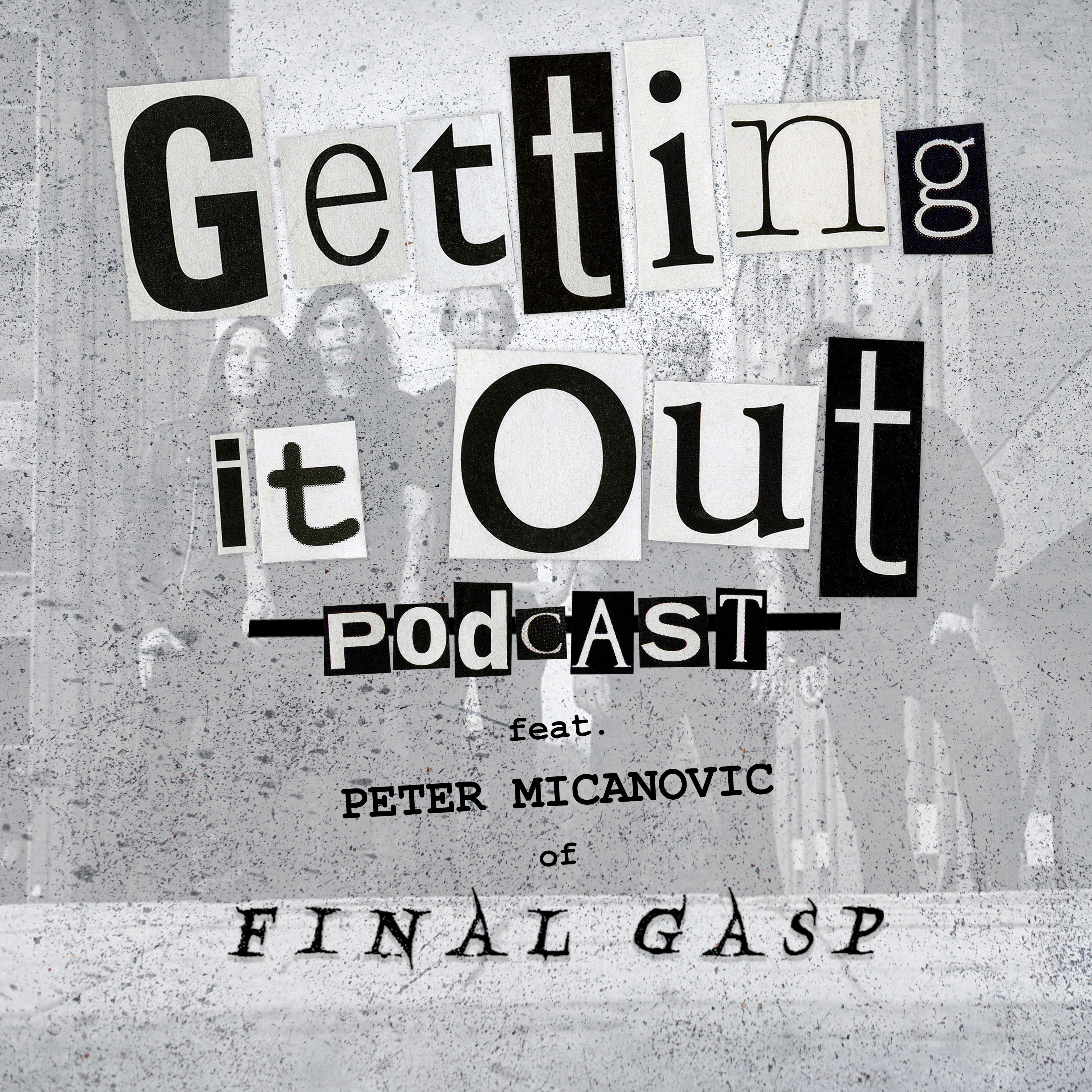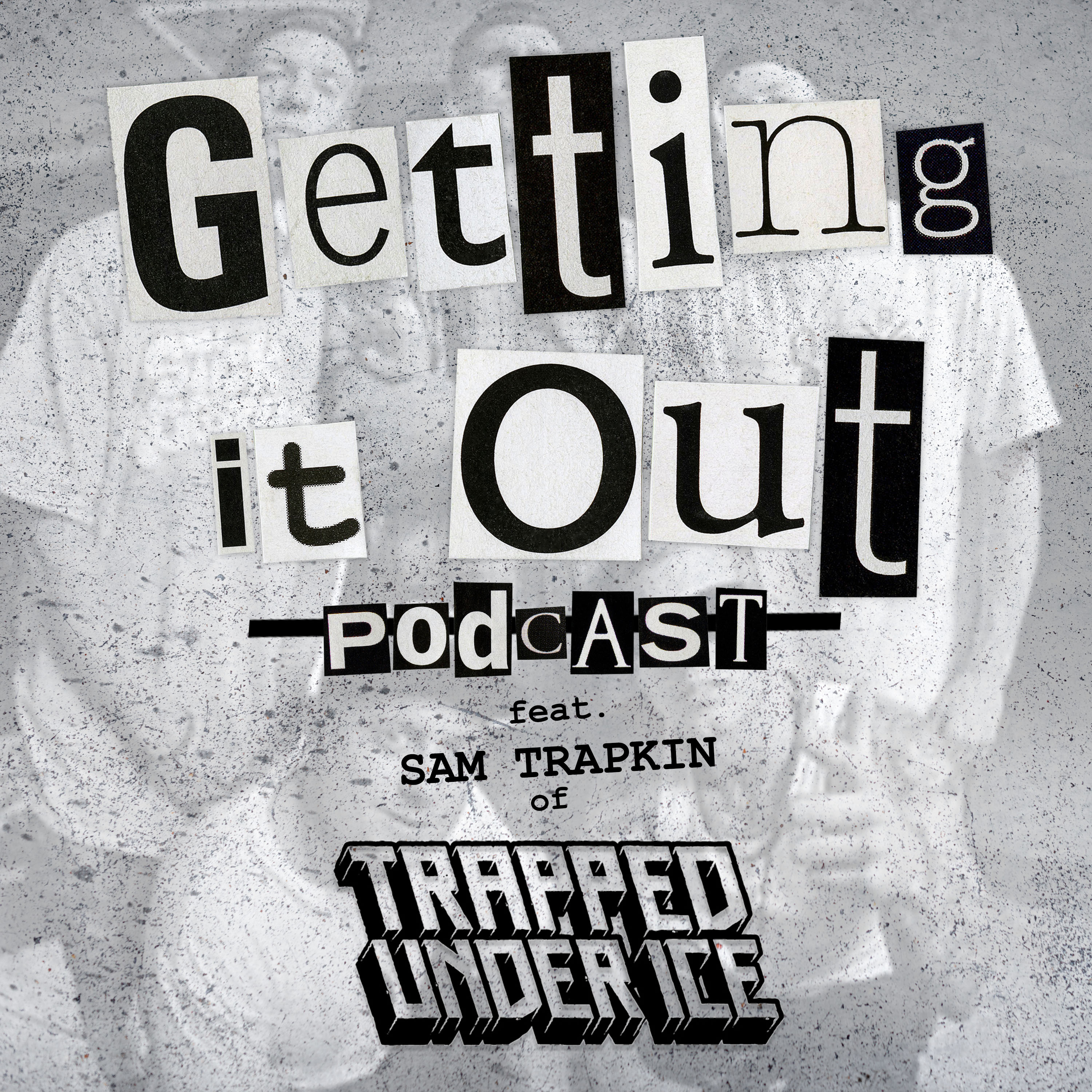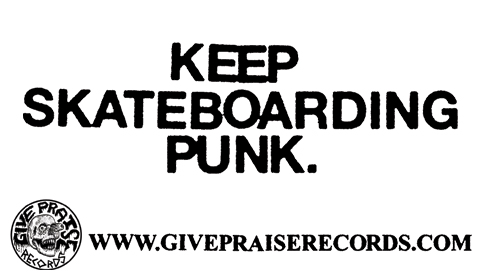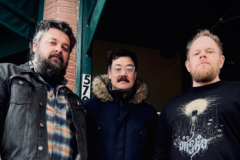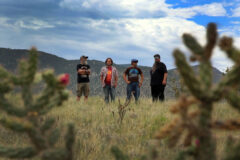Interview: Evan Seinfeld of Biohazard
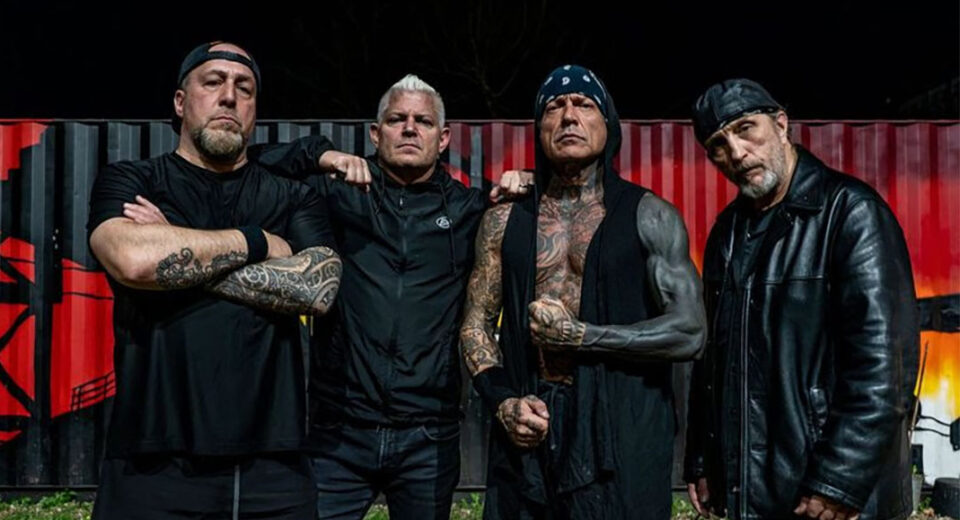
Today, BIOHAZARD released Divided We Fall, their first album in over a decade and first since reforming the classic lineup. Last week, I had the pleasure of speaking with the iconic bassist and frontman Evan Seinfeld about the early days, the reunion, and the new album. Purchase Divided We Fall HERE.
This interview is also available in audio format on the Getting It Out Patreon. Check it out HERE.

Getting It Out: Alright, man…Just something I was curious about with you. What was your first New York hardcore show?
Evan Seinfeld: Well, it was interesting because I grew up as a metal kid. I grew up on Black Sabbath, Judas Priest, Iron Maiden, Motorhead, Mercyful Fate, and I was growing up in Brooklyn. I was a roadie for Carnivore.
Carnivore was the gateway drug between thrash metal and hardcore. And, Pete Steele, rest in peace. I was his roadie. And we were more like bros and you know, hangout guys, and Anthony Meo, the original drummer who started the band with me in 1987, used to roadie for Louie Beato, the drummer, and Carnivore.
The first hardcore show I was ever at, Carnivore was playing with the Cro-Mags at CBGB’s. And I was like, I knew what CBGB’s was, but I’d never been there on a Sunday hardcore matinee. And… you know, we got there, the Carnivore played, and I started… I started seeing the chrome. I couldn’t believe what I was seeing. You know? I had their demo in 1985…but seeing it, it was…It made me rethink everything I was creating with Biohazard.
You know, Biohazard took a left. You know, and we incorporated… at kind of the best of all worlds. I guess that’s what an artist does, they draw from their influences and curate a sound, or a… you know, a vibe. And for us, it’s not, you know, it’s a physical thing. It’s a song, it’s a dance, it’s a movement, it’s a connection with the crowd, and that was something that we didn’t see in metal. You know? And I grew up, you know. Like, in the big show, so…we were kind of that band that brought CBGBs to the arenas when we were opening for Slayer, and Pantera, and Ozzy, and we got to do that, it was really incredible, you know?
Getting It Out: Yeah, it’s kind of interesting, because to me, Biohazard was an entry point to hardcore, but it was through more mainstream metal. My thing was the BMG and Columbia House things when I was a kid, you know. I would get tons of free CDs, because it had a “contract void if minor thing” in there. So, kids could get whatever the fuck they want. But it was only, like, mainstream stuff, but of course, State of the World Address was on Warner Bros. That was the introduction, and from there, it was finding hardcore. But for years, I had no idea that hardcore was even a genre.
Evan Seinfeld: You know, you’re not the first or the thousandth, but we were a lot of people’s entry point. Because bands like Pantera and Slayer that were already…at the top of their genres. We’re like, let’s find something a little different and, you know, we were friends with all those guys over the years, and it was really cool to see the metal kids grab onto it. It’s like a natural progression, if you like aggressive, hard music, you know? It’s just how it goes, you know?
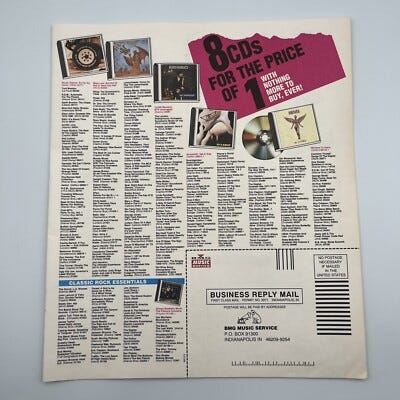
Getting It Out: Um… a couple years ago, maybe a year ago, I was talking to Alan Robert and he told me that you were his babysitter growing up, is that true?
Evan Seinfeld: Alan lived in the house across the street from me on Flatland 2nd Street in Canarsie, off East 108th Street. And, yeah, I babysat him. It was my first babysitting job. I was, like…10, and he was probably, like 4, you know, something like that. I used to walk him to school, too.
Alan’s great, amazing, creative. Incredible person, I’m so blessed. Who would think that we lived across the street from each other growing up, and we had such similar career paths, you know?
We just did a tour together in Europe. 30 shows, all sold out.
Getting It Out: That’s awesome. Both bass players, same neighborhood? Couldn’t write it. So, if that was your first job. Have you ever had a traditional 9-to-5 job?
Evan Seinfeld: I mean, I worked in construction. Yeah, I worked since I was a kid. We’re a blue-collar band, you know? I worked in demolition, I worked in construction. When we started the band, I worked at a lumberyard, building materials. In the ghetto, and on Utica Avenue in the 80s, when crack was on the streets, and I worked in the South Bronx. Putting in windows, doing roofing. Non-union construction jobs, like, dangerous shit in bad neighborhoods. I always took really shitty jobs on purpose that would beat the fuck out of my body. I used to run a jackhammer, too. I would take these jobs because I didn’t want to get comfortable.
Getting It Out: Why’d you take it on purpose?
Evan Seinfeld: I watched guys who had the same dream I did. Give it up for safety and security. You know… everybody insisted you had to have a backup plan. I worked at the pizzeria. That we all used to eat at. Um, actually, Life of Agony and their documentary did an interview at Lenny and John’s, the place I worked at. It was the neighborhood spot.
But I took the New York City Fire Department test and it takes years to get called. So, I took the test. And… it was really funny. We were leaving to go on tour, we just put out Urban Discipline, and we were leaving to go on an 18-month fucking world tour, and I get a call…
“Hey, this is, you know, Lieutenant O’Brien from the…you know, this brigade, and I’m calling, uh, I’m calling to congratulate you. This is… you’ve been waiting for this phone call. Son,… you had a great score on the written test, just gotta come and take your physical, and we’re gonna assign you to a house, and, you know, you have a career.”
It was emotional, I stopped and sat down for a second because I’d completely forgotten about it, you know?
And I said, “Lieutenant, with the most humility and respect. Please give this job to the next man on the list who’s waiting for a job because I’ve become employed in something I’m really passionate about, and I won’t be able to take the job.”
I had a bunch of jobs, man. I worked in a… I worked in a Crazy Eddie selling stereos. I did a lot of nightclub work. I worked security at clubs in New York City, Palladium, Tunnel, Limelights. Even at Lamour’s in Brooklyn. I always knew that everything in life was temporary, so I never really dug in too deep.
I’ve always had an entrepreneurial spirit, so…I’ve had jobs working for myself my whole life, you know.
Getting It Out: Yeah, that’s essentially why I asked the question. You’ve been able to do…a lot of very cool things. Your career arc is kind of insane from my perspective, just looking at all the things that Evan Seinfeld has been involved in.
So I’ve heard a little bit about the story of how the band has come back together a couple years ago, but how did it come to you guys making a new record?
Evan Seinfeld: You know, we got out on tour. We put the band back together with no intention, just wanted to get together and play. Nobody talked about an album. We went out and did all these shows, and the kids were fucking going insane. We were playing festivals with 100,000 people, and everybody’s jumping like, it’s 1990 fucking 5.
And we were like…everybody in this band is a prolific writer, and you know, Billy and Danny are producers that, like, engineer and…we started just, like, being, like. “What do you think? You think… You think the world even wants a new Biohazard album?”
We didn’t really think that was a thing. And before we know it. You know, we had a lawyer, and a manager, and an agent, and sold-out tour, and suddenly the lawyer’s getting calls from labels saying, “So what’s the deal with the new Biohazard record?”
It was nice that it was asked for. We had a bunch of labels interested, and we were really happy with our choice. We went with BLKIIBLK. Which is a brand new label from the Frontiers group, and they signed us, and they signed Megadeth. And, like, they’re committed to, like trying to be how a record label’s supposed to be, and, like, in a partnership with a band, you know?

Getting It Out: Yeah, well, I thought it was a cool move when you decided to go with the album, because that’s also the risky thing, because we’ve seen plenty of bands come and go, do reunion shows, do reunion tours, but it’s often that album that, uh… doesn’t go so well.
But I gotta tell ya, I’ve listened to it a few times now, Divided We Fall. And as a lifelong Biohazard fan, it’s a fucking Biohazard record, and that’s damn near good enough for me.
Evan Seinfeld: Listen, I…I can’t say this definitively to everybody. But I can say this definitively, confidently, if you’re a Biohazard fan and you liked State of the World Address, or Urban Discipline, or you ever saw us live. And get in the fucking pit and move your body.
This is a…It may be our finest hour, truthfully. Because we put so much heart and soul, and everybody was so hungry again after not putting out a record for almost 15 fucking years.
It’s like, we put our best feet forward, and we really… I think we did a great job. Matt Hyde did a great job on the production. There’s not a thing about it I would change.
Getting It Out: How did you guys work this one out, being that you’re all kind of spread all over the place?
Evan Seinfeld: Well, we got together, the whole band in New Jersey. In the Jersey Shore, and we did all the drum tracks, we played as a live band. And then we worked individually with Matt, playing our individual tracks. And it was actually, for me personally, it was great. Because I got to, like…get pushed by the producer. To kind of spread my breadth of what I can do as a singer. Without everybody standing over everybody, because everybody in this band is a producer, and everybody’s a writer, and everybody’s in Biohazard, and everybody in the band is right when they think they know what’s best for Biohazard. But we can’t all be right at the same time.
Getting It Out: Yeah, that’s fair, and I never thought about it that way. So, I guess, maybe sometimes people want to tweak more than it needs to be tweaked.
Evan Seinfeld: No, not like that. Not like anybody’s micromanaging anybody else. We still trust each other and gave each other the space. You know, I would come in to the studio when I was staying in LA to do vocals, and Billy was doing them on other days, and I would hear what Billy did and be like, “Wow, I’m so glad he did… I never would have thought of that.”
You know, and I’m sure vice versa, and like… Danny wrote a lot of the music and lyrics. And… that’s always really good for me, because when somebody else writes a vocal line for me, I step into it as, like, I try to, like, embody it and perform it, even… it comes out even better than the things I write myself sometimes, because I’m reaching, you know? And there’s a couple of the songs that just give me fucking chills, you know?
Getting It Out: My early favorite, I gotta tell you, is “Fight To Be Free.”
Evan Seinfeld: Yo! That’s in… that’s in my top 2.
Getting It Out: Yeah? What’s the other one?
Evan Seinfeld: Um, well, I like all the singles. I mean, I love “Fuck the System,” but …well, it changes. You know, you listen to an album. Right now, my three favorites are…”Fight To Be Free”, “Warriors,” and a song that I tried to vote off the album somehow snuck up and became my favorite at the moment, “Overcome.”
Getting It Out: Okay, that’s good. You know why this is interesting to me? Because I might have only just heard the full album 24 hours ago, and I’ve been listening to it a lot, but right away, the back half is my preferred portion of the record. And all 3 of those songs are back half.
Evan Seinfeld: Yo! Yeah, me too, me too, and you know, I’m also the guy who goes deep on the things I listen to, and I look for what really connects with me. But, um… yeah, those are my favorites right now. The part in Overcome…that just balances [sings] “anything that gets in my way, my way, no way! I will overcome anything that gets in my face, no way I sing!”
It’s like… it’s like we took it to another place, you know? It’s like the biohazard swag. Like, updated, you know?
And “Warriors”, I just love the sing-along, [sings] “Warriors! Come out and play!” It’s like, fucking… I can picture…CBGB singing it, I can picture the festival in Poland with 600,000 people singing it. And I can picture the soccer stadium in Brazil. Like, when we opened for Iron Maiden at the Monsters of Rock at the fucking Macarenas. There’s 100,000 people, and the people were singing, “Hallowed Be Thy Name”, in the girders were fucking shaking, you know?
Yeah, those are my thoughts. And “Fight To Be Free”, I think, should get licensed by the UFC. It was already… ”Fight To Be Free” and “Warriors” were in this bare-knuckle boxing event on TV. That Conor McGregor sponsors, it’s some real hockey shit. Bare-knuckle boxing on ice.
Getting It Out: On ice?
Evan Seinfeld: It’s a small… It’s an octagon. Guys come up there in hockey equipment, and they just punch each other in the face until one guy gets knocked out.
They were like, “This is the most hardcore sport ever, so we need the most hardcore music ever.” And they came right to Biohazard, it was such good timing. I was like, I think I have a song for you, you know?
Getting It Out: That’s really funny, I haven’t heard any… I know about Bare Knuckle, I know about boxing, I know about hockey, but I never heard the combination of the two.
Evan Seinfeld: Yeah, just Google it, bare knuckle boxing on ice, just look it up.
Getting It Out: That’s absurd.
Evan Seinfeld: Yeah, it was viewed by a lot. When they streamed it live, it was, like, almost a million people watched it or something. It was pretty cool.
And every time somebody walked into the ring, they played Fight to be free. And every time somebody was declared the winner. They would play Warriors, and the guy would put a pair. I was like, “You guys are clever.”
I told them, “Pick whatever you want off the album.” And we sent them the album, and that’s what they did. It’s on YouTube. You can watch the archive thing.
Getting It Out: Between you, myself, and those people, we all seem to be favoring the back half of the record, but the first half has all the singles. What’s up with that?
Evan Seinfeld: Um, I love all the songs on the first half. I mean, those were the Democratic votes between the band and the management, and the label. The songs that they thought put our best foot forward, to show people what Biohazard was about in 2025.
Listen, we’re not a band that gets played on the radio; every song has the word motherfucker in it, so…
Getting It Out: Yeah, so what’s a single anyway?
Evan Seinfeld: A single is just, you know, an intro to the album. Maybe it’s good to say, we put out 4 singles, put the back half, which you haven’t heard yet. It’s the meat, you know?
Getting It Out: Yeah, no, that is a selling point of its own. Is there anything that could be called a theme or concept to Divided We Fall?
Evan Seinfeld: Absolutely. Yeah, I mean, if I had to speak on it in a quick sentence or two.
You know, Biohazard’s always been a socially conscious band that has been pointing out man’s inhumanity to man across State of the World Address, across Urban Discipline, across New World Disorder, Kill Or Be Killed, and Divided We Fall. It’s really about the signs of the times. You know, we live in a world completely divided. People are either on opposite sides of issues or different beliefs, or we’re just divided by our iPhones and our Androids, and whatever else…
But, you know, as human beings, we need to focus on our similarities, not our differences, and Biohazard has always been trying to unite people with our music and with our message, so this is a call to arms, to get united, and you know, get to know the man, not who we voted for. You know? Think about what’s really important in life, you know?
The powers that be would love to just keep us arguing over shit. Stoned on prescription medication, you know?
Getting It Out: Oh, they’re doing it right now, they’re winning that war, that’s for sure.
Evan Seinfeld: Okay, well… I ejected myself from the Matrix, so…
Getting It Out: You did!
Evan Seinfeld: Whatever barstool rhetoric is going on in the 717, I’m unaware of the issues. I’m not paying attention.
Getting It Out: The record, Divided We Fall, comes out October 17th, there’s one thing that I noticed looking at it. I see a name that I’m familiar with, who I just saw playing with Murphy’s Law, Phil Caivano. What’s this guy doing this record?
Evan Seinfeld: Well, we’ve all known Phil for fucking close to 40 years. Phil, he worked with us on the guitars… tuning them up…getting the sounds with Bobby. You know, a lot goes into having a good old-school guitar sound. Capturing our old-school energy with modern technology.
Phil’s just a genius of sound and a friend, and you know, we needed help, and Phil was there. He answered the call. He was also another set of ears to give us opinions on the production, he was almost like an associate producer, in a way, you know? Telling us that was good, maybe do that again, you know?
Getting It Out: He seems to be a well-liked person among a lot of people that I know and respect.
Evan Seinfeld: A very, very nice guy.
Getting It Out: With the release of Divided We Fall, what are you most looking forward to?
Evan Seinfeld: Like, really? Truth? I’m just looking forward to that moment that we’re playing live and we just whip out one of these new songs, and we’re playing “Tear Down the Walls” and the whole crowd sings, “TEAR DOWN! The walls! Tear down the walls!” And they know it. The way they know “Tales from the Hard Side”, you know?
